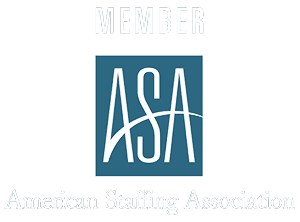When a staffing firm repeatedly misclassifies contractors as employees, it triggers IRS audits, penalties, and broken client trust. When payroll mistakes happen, trust erodes, and clients start questioning your reliability.
But financial penalties are just the beginning. Payroll errors can also impact compliance, slow down operations, and create unnecessary stress for your internal teams. Whether it’s misclassification, late payments, or inaccurate tax filings, even small mistakes can snowball into bigger problems that are difficult to recover from.
The good news? Preventing payroll errors is possible with the right systems and processes in place. Let’s dive into the hidden costs of payroll errors and how you can protect your firm from them.
Common Payroll Errors That Plague Staffing Firms
Payroll is already complex and when you add the layer of navigating the changes in the list of regulations, it can lead to mistakes. Here are some of the most common payroll errors staffing firms encounter:
Misclassifying Workers
When staffing firms incorrectly classify workers as employees or independent contractors, it creates a cascade of complications. Beyond potential IRS audits and Department of Labor investigations, misclassification affects tax withholdings, benefits eligibility, and workplace protections.
This fundamental error often surfaces during peak hiring seasons when firms are rushing to place candidates, leading to costly corrections and strained client relationships.
For example, a staffing firm classifying a long-term contractor as an employee might face back taxes, wage adjustments, and benefits compensation—all while managing the delicate conversation with both the worker and client about the correction process.
Read More: How to Distinguish Between Employees and Subcontractors
Overpayments or Underpayments
Payroll miscalculations create immediate challenges for both staffing firms and their placed workers. When a worker is overpaid, recovering funds requires careful handling and documentation, often straining working relationships. Underpayments can be even more damaging—causing workers to miss bill payments or face financial hardships while corrections are processed.
Consider a scenario where multiple workers at a manufacturing client are underpaid due to incorrect overtime calculations. Not only must the staffing firm quickly process back payments, but they also face difficult conversations with their client about billing adjustments and process reliability.
These situations can trigger wage complaints, compliance reviews, and damage the staffing firm’s reputation for reliable payroll
Missed Tax Deadlines
Taxes are usually paid on specific dates. Failing to submit payroll taxes on time can result in hefty penalties and interest charges. Late or missed payments can also flag your firm for an audit. This can create unnecessary stress and administrative burdens that divert attention from core business operations.
Incomplete Record-Keeping
Proper documentation forms the backbone of compliant payroll management. Missing or incomplete records can quickly escalate into serious compliance issues when essential documents are unavailable during audits or disputes. Common documentation gaps include:
- Incomplete employee files (missing I-9s, W-4s, or state tax forms)
- Insufficient time and attendance records
- Missing documentation for wage adjustments or promotions
- Incomplete records of benefits enrollment and changes
- Gaps in overtime authorization documentation
For instance, when a staffing firm can’t produce complete time records during a wage dispute, they may face not only the original wage claim but also penalties for inadequate record-keeping. This vulnerability extends to client relationships—missing documentation can complicate billing reconciliation and make it difficult to verify proper worker classification and pay rates.
The Real Cost of Payroll Errors
Here’s a closer look at the true cost of payroll errors and why staffing firms can’t afford to overlook them.
Financial Impact
Errors in payroll processing can quickly add up and cause significant financial burdens. Overpayments, penalties, and tax fines drain resources and cut into profits, while administrative costs for identifying and correcting mistakes create additional expenses. Time spent fixing payroll issues means less time focused on strategic growth and client service.
Reputational Damage
Payroll mistakes don’t just affect the bottom line, they can also erode trust with both clients and candidates. Missed or incorrect payments can lead to dissatisfaction, damaging relationships and tarnishing your firm’s reputation. A poor payroll track record can negatively impact a client’s employer branding, making it harder to attract top talent and secure future business opportunities.
Compliance Risks
Payroll errors can trigger scrutiny from multiple regulatory agencies, each with its own set of penalties and requirements. What might start as a simple payroll discrepancy can quickly escalate into a complex compliance issue.
For staffing firms, common compliance pitfalls include:
Tax Reporting Violations
When payroll records don’t match tax filings, it raises red flags with the IRS. A single misreported contractor payment could trigger an audit of your entire worker classification system. The IRS can impose penalties ranging from 2 to 25 percent of the underpaid tax amount, depending on how late the payment is.¹
Wage and Hour Law Violations
Different states have varying overtime rules, minimum wage requirements, and meal break policies. Managing workers across multiple states multiplies these compliance challenges.
The Department of Labor can impose penalties up to $1,100 per violation for misclassified employees or incorrect overtime calculations.² With multiple workers affected, these penalties can quickly accumulate into significant amounts.
Benefits Compliance Issues
Incorrect classification or hours tracking can lead to benefits eligibility mistakes. If workers who should receive benefits are incorrectly excluded, your firm could face penalties under ACA requirements and state regulations.
Read More: 7 Top Reasons to Outsource Your Payroll
When DIY Won’t Cut It
Managing payroll in-house becomes increasingly complex as your staffing firm grows. Today’s payroll landscape demands expertise in multiple areas:
Multi-State Compliance
Each state has its own wage laws, tax requirements, and reporting deadlines. As your firm places workers across different states, keeping up with these varying regulations becomes a full-time job. California alone has over 400 local tax jurisdictions, each with unique requirements.
Shifting Regulatory Requirements
Tax laws and employment regulations change frequently. In 2023, 24 states implemented new minimum wage rates, while others introduced stricter worker classification tests. Staying current with these changes while managing daily operations strains internal resources.
Technology Integration Challenges
Modern payroll requires seamless integration between time-tracking, scheduling, benefits administration, and accounting systems. One misconfiguration can cascade into widespread payment errors affecting hundreds of workers.
Why Expert Help Matters
Professional payroll partners bring specialized expertise that protects your staffing firm from costly errors while freeing your team to focus on core business growth. An experienced partner offers:
Dedicated Compliance Management
Rather than struggling to keep up with changing regulations across multiple states, you gain access to a team of experts who monitor and implement regulatory updates. This proactive approach prevents violations before they occur.
Advanced Technology Infrastructure
Enterprise-grade payroll systems offer security, accuracy, and integration capabilities that would be cost-prohibitive to develop and maintain internally. These systems automatically flag potential errors and ensure consistent processing across your entire workforce.
Risk Mitigation
Expert partners maintain comprehensive audit trails, ensure proper documentation, and handle complex tax calculations with precision. This systematic approach significantly reduces your exposure to audits and penalties.
Level Up Your Payroll Process with Signature Back Office
Imagine a scenario where you are not worried about your payroll process. With Signature Back Office, that scenario is within reach. Streamline payroll tasks, automate error prevention, and ensure compliance—all with our expert solutions.
Contact us today and learn how we can transform your payroll process. Your journey to effortless payroll starts here. Let’s do it together.
References
- Internal Revenue Service. “Failure to Pay Penalty.” U.S. Department of the Treasury, https://www.irs.gov/payments/failure-to-pay-penalty. Accessed 19 Feb. 2025.
- U.S. Department of Labor, Wage and Hour Division. “Handy Reference Guide to the Fair Labor Standards Act.” https://www.dol.gov/agencies/whd/fact-sheets/14-flsa-handy-reference. Accessed 19 Feb. 2025.





